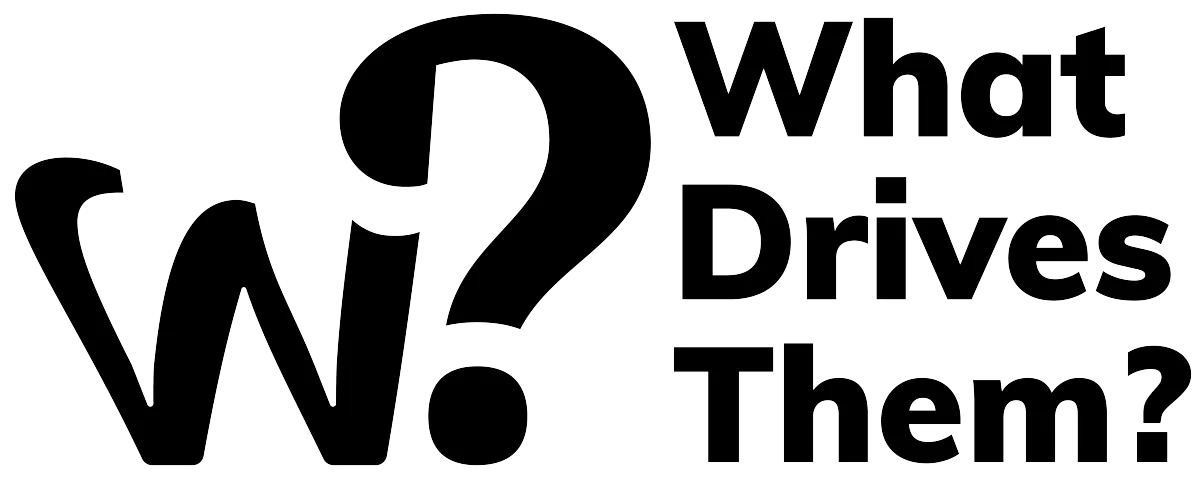
Answering “Tell Me About Yourself” in Interviews: 3 Key Steps
How to properly answer questions in job interviews is hard. I get it, I really do.
You are competing against hundreds and hundreds of candidates, and at the end of the day - how are you going to be the interview candidate that stands out?
One core way is to nail, the old, classic, and timeless question of “Tell Me About Yourself”
Well, to make matters easier for you, the best answer to "tell me about yourself" follows a three-part structure backed by psychological research!
TL;DR: The “Tell me about yourself” question isn’t small talk, it is your make-or-break moment. Interviewers form impressions within seconds, so your answer needs structure, confidence, and purpose. Use a three-part formula: start with a Professional Summary that links your experience to the role, follow with a Value Proposition that shows the problems you can solve, and finish with your Career Motivation that connects you to the company’s goals. Avoid rambling, oversharing, or downplaying achievements. Get this right, and you set the tone for a confident, memorable interview that makes you stand out from the crowd.
Professional interview strategy for how to introduce yourself in an interview:
Professional Summary: Highlight relevant experience and qualifications that match the job requirements
Value Proposition: Demonstrate the specific value you bring to solve their problems or drive results
Career Motivation: Show alignment with company values and express genuine interest in the role
"So, tell me about yourself."
Five simple words that somehow manage to reduce even the most accomplished professionals to rambling about their university days or that summer job at the local café.
It's the question that should be easiest to answer - after all, who knows you better than you? - yet consistently trips up candidates across every industry and experience level.
Here's what's particularly frustrating: most career advice treats this as a throwaway question, suggesting you simply "give a brief overview of your background." But research reveals something far more significant happening in those opening moments of your interview.
Why Does "Tell Me About Yourself" Matter so Much in Interviews?
This question isn't just an icebreaker - it's a strategic interview opener that shapes how hiring managers perceive you in the very first moments.
Studies show that interviewers form lasting impressions in seconds, meaning your answer here can set the tone for your entire interview.
This question lets hiring managers assess not only your experience but also your communication skills, self-awareness, and how well you handle pressure. Answer it well, and you build positive momentum that influences how interviewers interpret everything else you say.
Miss the mark, and it can cast doubt on your fit for the role - even if you have a brilliant CV.
The Hidden Assessment
When interviewers ask this question, they're evaluating three critical factors: your ability to communicate clearly under pressure, demonstrate self-awareness about your professional strengths, and connect your background to their specific needs.
Your answer sets the tone for the entire interview.
A strong response creates positive momentum, whilst a weak opening can create doubt that's difficult to overcome, no matter how well you answer subsequent questions.
The biggest mistake candidates make is treating this as a biographical question rather than a strategic opportunity. They ramble about their education, list every job they've ever had, or share personal details that have nothing to do with their professional qualifications.
The Psychology Behind First Impressions in Interviews
Understanding the psychological mechanisms at work during interviews gives you a significant advantage in crafting responses that resonate with hiring managers.
Humans instinctively make quick, accurate judgements based on brief observations of behaviour.
This "thin slice theory," researched by Ambady and Rosenthal (1993), means your answer to "Tell me about yourself" has a disproportionate influence on the hiring decision.
Key Psychological Biases at Play:
Confirmation Bias: Interviewers look for information that confirms their first impression
Halo Effect: A strong start makes your whole interview look better
Primacy Effect: Early information sticks more than later details
Understanding these biases shows why your opening response matters so much and why a structured, confident answer improves your chances dramatically.
What Are the 3 Essential Components for Interview Success?
Research reveals that the best responses combine these three elements, each backed by specific psychological studies:
1. Professional Summary with Relevant Experience
Start by showcasing your most relevant experience and qualifications, directly aligned with the job.
Research by Bangerter and Roulin (2017) demonstrates that clear, concise communication of skills linked directly to job requirements increases perceived competence and organisational fit.
Focus on accomplishments and skills that prove your capability and fit. Keep this concise - aim for around 30-45 seconds maximum.
Implementation strategy:
Lead with your most relevant and impressive qualifications
Quantify achievements wherever possible to demonstrate impact
Connect your experience directly to the job requirements
2. Value You Bring to the Organisation
Move beyond just your background. Highlight specific strengths and how they solve the company's problems or help them meet goals.
Research by Cable and Judge (1997) reveals that highlighting unique strengths and potential contributions directly addresses interviewers' focus on added value to their organisation.
Use measurable examples to demonstrate impact and show you understand their business needs.
Strategic approach:
Research company challenges and industry trends before the interview
Prepare specific examples of how you've solved similar problems
Focus on results and measurable outcomes from your previous work
3. Career Motivation and Cultural Fit
Finish by expressing genuine enthusiasm for the role and alignment with company values.
Studies by Kristof-Brown et al. (2005) demonstrate that showing alignment with company values and expressing genuine motivation significantly improves interviewer perceptions of cultural fit and long-term commitment.
Show how this job fits your career goals and why you're excited about the opportunity to contribute and grow there.
Professional interview tips for demonstrating fit:
Reference specific company initiatives or values that resonate with you
Explain how this role fits into your broader career trajectory
Show knowledge of industry trends and how they affect the company
Express enthusiasm for the specific challenges and opportunities the role presents
What is the Best Answer Formula for "Tell Me About Yourself?"
Here's a simple, proven structure that combines the three research-backed components:
Opening (Professional Summary):
"I'm a [your professional title] with [X years] of experience in [industry/field], most recently working as [current/recent position] where I [key accomplishment related to the role]."
Middle (Value Proposition):
"What I bring to this role is [specific skill/expertise] that directly addresses [company need]. For example, in my last role, I [quantified achievement]."
Closing (Motivation and Fit):
"I'm especially excited about this opportunity because [specific reason related to company/role], and I see it as the perfect step to [career goal aligned with the role]."
Aim to keep your full answer between 60-90 seconds. Practice until it flows naturally but avoid sounding over-rehearsed.
What Should You Not Talk About When Answering "Tell Me About Yourself?”
Understanding what NOT to say in your personal introduction is just as crucial as knowing what TO DO.
If you go off talking about something that adds value for the ultimate “Tell me about yourself” question it shows respect for the interviewer’s time, highlights your professionalism, and positions you as a confident candidate who’s genuinely engaged with the opportunity!
But what are the four main talking-point pitfalls candidates tend to fall victim to?
1. The Autobiography Trap
Starting your answer from childhood or listing every job on your CV can quickly bore interviewers who’ve already read your resume. Research shows interviewers favour concise, relevant responses that focus on what adds value now (Forbes, 2023).
Wasting time on your entire life story risks losing focus and failing to engage (LinkedIn, 2024).
2. The Personal Overshare
Dropping irrelevant personal details can create awkward moments and might make you appear unprofessional. Studies from career psychologists reveal that maintaining appropriate boundaries during interviews boosts perceptions of competence and respect (The Muse, 2025).
Oversharing also distracts from your professional strengths - which is something we definitely don’t want to do!
3. The Modesty Mistake
Downplaying your achievements may seem humble, but it actually reduces your impact. Recruiters tend to respond positively when candidates confidently own their successes, which boosts perceived competence - a key hiring factor (Harvard Business Review, 2024).
Being too modest can leave interviewers unsure of your true potential.
4. The Generic Response
Treating every interview like a one-size-fits-all event by recycling the same answer signals a lack of preparation and genuine interest.
Research by AIHR (2024) shows tailored responses strongly correlate with higher interview success because they demonstrate you’ve done your homework and understand the role's unique demands.
Frequently Asked Questions
How long should my answer be? Keep it between 60-90 seconds - enough to cover key points without losing attention.
Should I talk about my personal life? No. Stick to professional information relevant to the role and company.
What's a strong sample answer format? Use this structure: "I'm a [title] with [X years] experience in [field], most recently achieving [specific accomplishment]. I bring [skill] that addresses [company need], as shown by [quantified example]. I'm excited about this opportunity because [reasons related to company/role]."
How do I answer if changing careers? Focus on transferable skills and relevant projects or training that demonstrate your commitment and value in the new field.
Ready to nail your next interview? Check out our online course and free resources that show you the frameworks that get you noticed and land that job.



